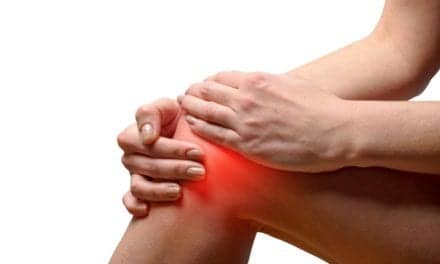A recent study has found abnormal reactions between the brain and gastrointestinal tract (gut-brain axis) in moderate to severe chronic TBI patients. These patients may not be absorbing nutrients properly, and treatments need to be developed to address these issues, researchers suggest.
Microbiome biomarkers may help identify long-term risks and treatments, the researchers note.
The study, published recently in Journal of Neurotrauma, was conducted at the University of Texas Medical Branch in the Department of Neurology in Galveston, Texas (under the supervision of Dr. Brent Masel) and the Centre for Neuro Skills in Bakersfield, California (under the supervision of Dr. Mark Ashley).
Study Summary
The controlled study followed 10 TBI patients in Galveston, where Dr. Masel is a clinical professor at the University of Texas Medical Branch in the Department of Neurology. Dr. Masel is also the vice president of Medical Services at the Centre for Neuro Skills. Researchers had the patients fast, get their blood drawn, eat a specific meal and get their blood drawn again.
TBI patients had low baseline levels of essential amino acids. Even after eating a meal, their levels remained lower than the non-injured study participants. Researchers determined that TBI patients weren’t absorbing essential amino acids.
Dr. Masel and his colleagues made this determination and then wondered if it was simply the local diet or geographical location (lifestyle/exercise, stress, etc). He called Dr. Mark Ashley and suggested an identical study at the Centre for Neuro Skills in Bakersfield, California, which included 12 patients. The results were the same, so the conclusion was that this issue wasn’t related to diet, location or lifestyle, a media release from Centre for Neuro Skills explains.
“The commonality is TBI. Essential amino acids are not being absorbed from the gut, and those molecules are critical to TBI recovery. This is amazing to me: maybe these patients are starving. I figured there must be a connection between the gut-brain axis.”
— Dr Brent Masel
After administering the fasting/eating/blood draw protocol, they added stool sample analysis.
The study then focused on the microbiome and its relation to bacteria in the gut. The gut can say “OK” to a healthy system and absorb essential amino acids or can “gobble up” the same molecules depriving the human of using these critical nutrition components. That’s what was found in the fecal matter. Essential amino acids were missing; the commonality in both the Texas and California groups was TBI.
This may affect the ability of patients to fully recover. In CNS’ “whole person” approach, it could affect the quality of functionality/return to normalcy. Point of distinction here – with CNS’ dedicated research team, these discoveries/research/scientists and their publications can advance treatment and expand understanding of the depth of TBI’s damage.
The study’s distinction is that the two groups, thousands of miles apart, produced the same outcome and the same deficit of non-absorption. The CNS patient study group was part of CNS’ Long Term Care program, so the organization will be able to study them now and in the future, the release continues.
Observations
“Clearly there are abnormalities in the microbiome of the gut in TBI patients.Maybe this is a piece of the puzzle that can solve the mystery of TBI. It’s one puzzle piece at a time. Presently, the majority of what we do is treat the symptoms of TBI, as opposed to the underlying causes of those symptoms, which would be far more effective.
“Perhaps by correcting the malabsorption of the essential amino acids, we can advance the recovery from TBIs. We will be studying how altering the diet in these individuals may change their amino acid absorption. Our hope is that this will assist in identifying long-term risks and treatments.”
— Dr Brent Masel
“It’s gratifying to be part of a study that in the end may help identify keys that allow us to better treat patients with TBI for the long haul. With CNS’ dedicated research team and these discoveries, we hopefully can advance treatment and expand our understanding of the depth of TBI’s damage. We look forward to the next steps.”
— Dr Mark Ashley
[Source: Centre for Neuro Skills]
Related Content:
Harness the Gut Microbiome to Improve Stroke Recovery, Study Suggests
Spinal Cord Injury Changes the Gut Microbiome; Reciprocal Effects on Functional Recovery
Harvard Scientists ID How the Gut and Brain Influences ALS




